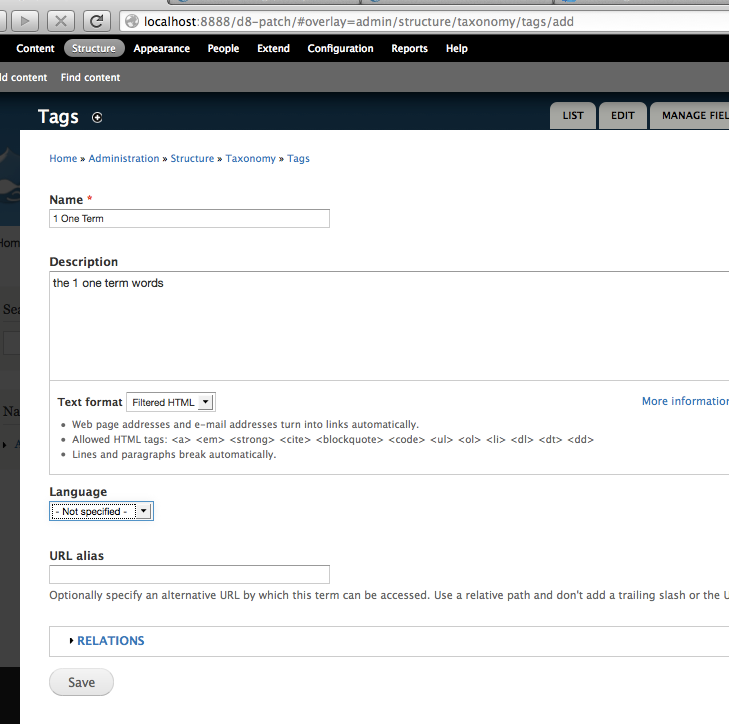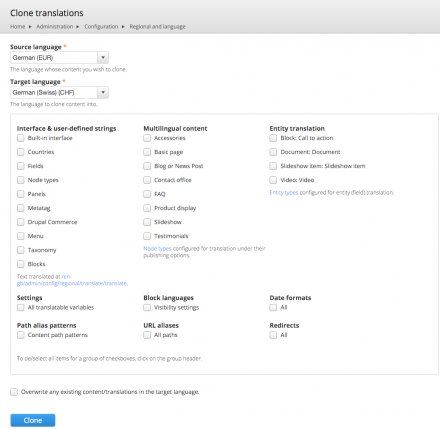

Includes/, line 1637 Default translation handler for the translation module. * Constructs a new DictionaryTermListBuilder object.Overrides EntityTranslationHandlerInterface::localTasksAlter See alsoĮntityTranslationHandlerInterface::localTasksAlter() File After all we would like to see the list in a meaningful fashion with both the English and Polish word side by side in a table get('entity.manager')->getStorage($entity_type->id()), Now when menus and tasks are created, let's create the page which lists our entities and the add/edit and delete forms /src/Entity/Controller/TermListBuilder.phpįrom all the controllers we will implement the controller for the list of entities. # Where will the link appear, defined by route name. The route is defined from the Content Translation module, which must be installed.
In Drupal 8, that is done in admin/structure/types/manage/
Route_name: entity.dictionary_lete_formĪdd an Add term to the list terms dictionary._term_add: In order to have that tab visible for a node, the multilingual support for the content type must be set to Enabled, with translation. Route_name: entity.dictionary_term.edit_form Route_name: entity.dictionary_term.canonicalīase_route: entity.dictionary_term.canonical Usually, entities also have helpful local links and tasks useful, like the local /edit task.Īdd local tasks # Define the 'local' links for the module _permission: 'administer dictionary_term entity'ĭ 'delete dictionary_term entity': _form: '\Drupal\dictionary\Form\TermSettingsForm' Path: 'admin/structure/dictionary_term_settings'

# Calls the lete controller, defined in the dictionary_term entity. Public static function baseFieldDefinitions(EntityTypeInterface $entity_type) /delete' The behaviour of the widgets used can be determined here. * In addition, we can define how the field and its content can be manipulated * Field name, type and size determine the table structure. Package: Application \Drupal::currentUser()->id(), In /sites/modules/custom I created a 'dictionary' folder, with the following initial files:
Drupal entity tranlsations translate tab update#

It's a really simple entity with just 2 data fields: The entity will store translations of words from English to Polish. I recently had to create a simple entity of an online dictionary and think this is a great opportunity to share with you what I learned. Also, you can search for the entity with Entity Drupal::EntityQuery and many more. A flag indicating whether this is the default translation. If you create an entity you get Views integration for free, you can allow the entity to be fieldable and this will out or the box allows you to add various fields to it. stdClass Object ( CLASS > DrupalnodeEntityNode inpreview > values:protected. If you are serious about Drupal development, check this article below. Entity API in Drupal 8 is now baked into core and is now so well organised that there is almost no excuse for creating database tables, which are not entities at the same time.


 0 kommentar(er)
0 kommentar(er)
